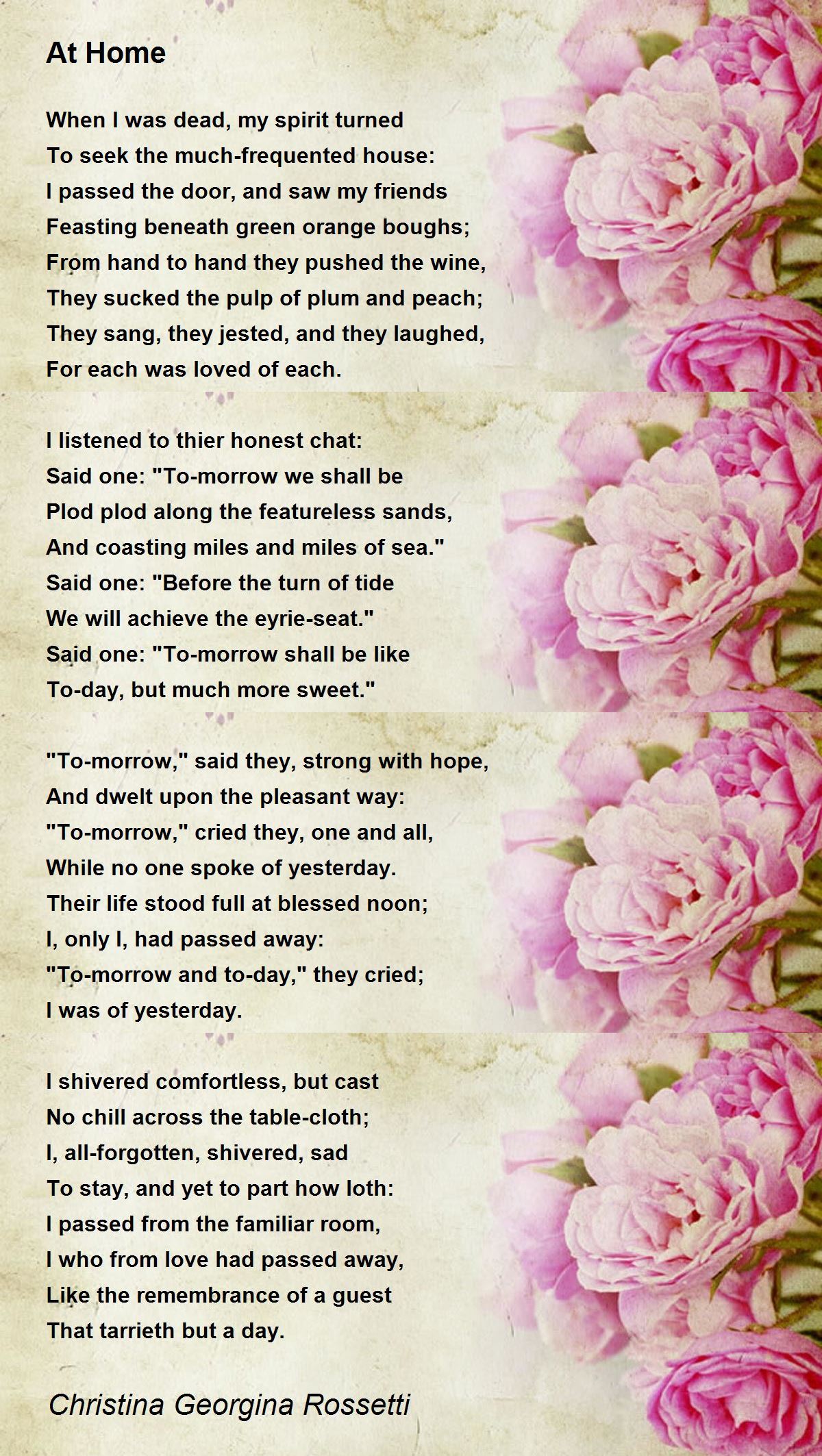

The youthful Rossetti is described as "self-possessed, articulate, passionate and charismatic" but also "ardent, poetic and feckless". During his childhood, Rossetti was home educated and later attended King's College School, and often read the Bible, along with the works of Shakespeare, Dickens, Sir Walter Scott, and Lord Byron.

John William Polidori, who had died seven years before his birth, was Rossetti's maternal uncle. His father was a Roman Catholic, at least prior to his marriage, and his mother was an Anglican ostensibly Gabriel was baptised as and was a practising Anglican. He was the brother of poet Christina Rossetti, critic William Michael Rossetti, and author Maria Francesca Rossetti. His family and friends called him Gabriel, but in publications he put the name Dante first in honour of Dante Alighieri. The son of émigré Italian scholar Gabriele Pasquale Giuseppe Rossetti and his wife Frances Mary Lavinia Polidori, Gabriel Charles Dante Rossetti was born in London, on. Original manuscript of Autumn Song by Rossetti, 1848, Ashley Library Rossetti's personal life was closely linked to his work, especially his relationships with his models and muses Elizabeth Siddal (whom he married), Fanny Cornforth and Jane Morris. He frequently wrote sonnets to accompany his pictures, spanning from The Girlhood of Mary Virgin (1849) and Astarte Syriaca (1877), while also creating art to illustrate poems such as Goblin Market by the celebrated poet Christina Rossetti, his sister.

Poetry and image are closely entwined in Rossetti's work. His later poetry was characterised by the complex interlinking of thought and feeling, especially in his sonnet sequence, The House of Life. His early poetry was influenced by John Keats and William Blake. Rossetti's art was characterised by its sensuality and its medieval revivalism. His work also influenced the European Symbolists and was a major precursor of the Aesthetic movement. Rossetti was later to be the main inspiration for a second generation of artists and writers influenced by the movement, most notably William Morris and Edward Burne-Jones. He founded the Pre-Raphaelite Brotherhood in 1848 with William Holman Hunt and John Everett Millais. Rossetti ends the second verse much as she ended the first, indicating that in death there will be relaxation, after a life lived in whatever capacity she chose.Gabriel Charles Dante Rossetti ( – 9 April 1882), generally known as Dante Gabriel Rossetti ( / r ə ˈ z ɛ t i/), was an English poet, illustrator, painter, and translator, and member of the Rossetti family. Words like dreaming and twilight imply a gentle beauty and create an aura of relaxation around death. She won’t see shadows or feel the rain, both things typically associated with darkness and sadness. But in Rossetti’s words, this afterlife seems peaceful, welcoming and worry-free. There is perhaps some morbidity in the idea that, once dead, a person will not see, feel or hear. It feels as though she just wants those she leaves behind to be happy. There’s a nonchalance to the entire poem, “…if thou wilt, remember…if thou wilt, forget.” When she is no longer living, it won’t be her concern whether she’s forgotten or remembered. Don’t bother with the fanfare and the flowers, the tears and sad songs. Perhaps referring to a lover, a family member or a friend, Rossetti tells her “dearest” not to worry when she (the writer) passes away. But Rossetti’s poem paints a different, more serene picture. This is especially true in her poem titled, “Song.” So often death is portrayed as dark and ominous cruel and tragic. Credit: A renowned poet, Christina Rossetti has a way of enchanting readers with her beautiful words and imagery.Įven in her poems about death, Rossetti crafted an enthralling and almost whimsical moment for her readers to step into.


 0 kommentar(er)
0 kommentar(er)
